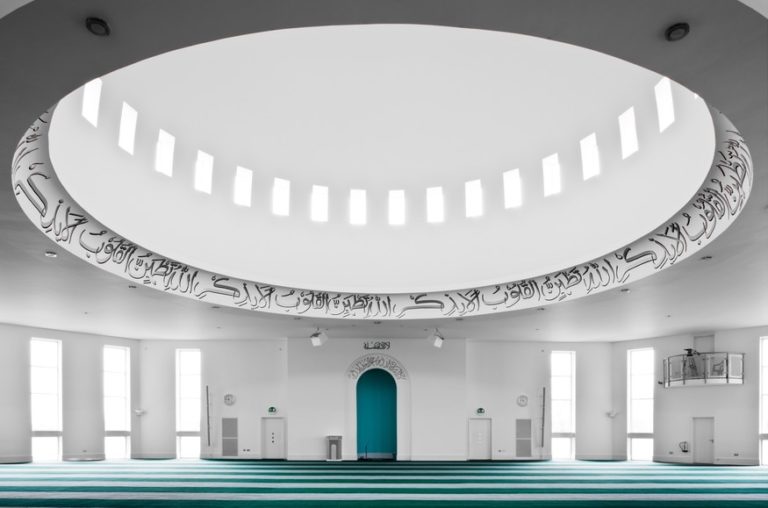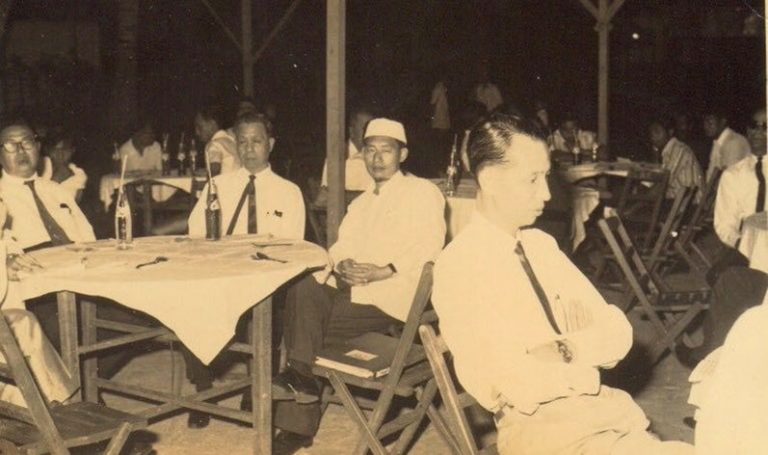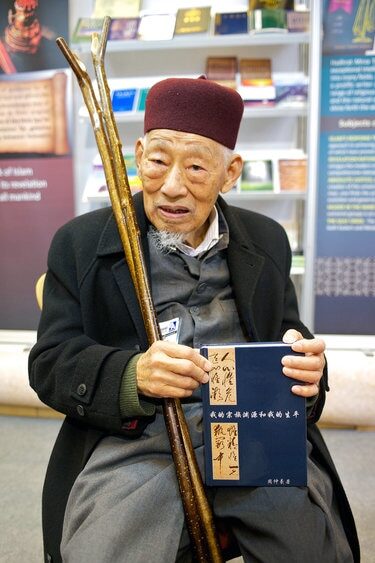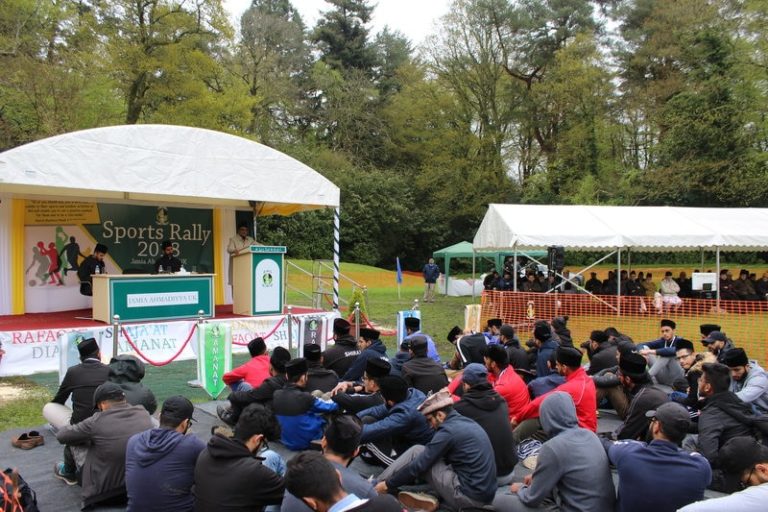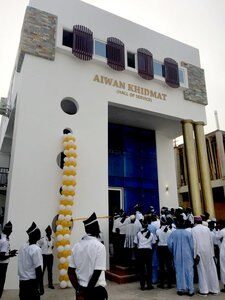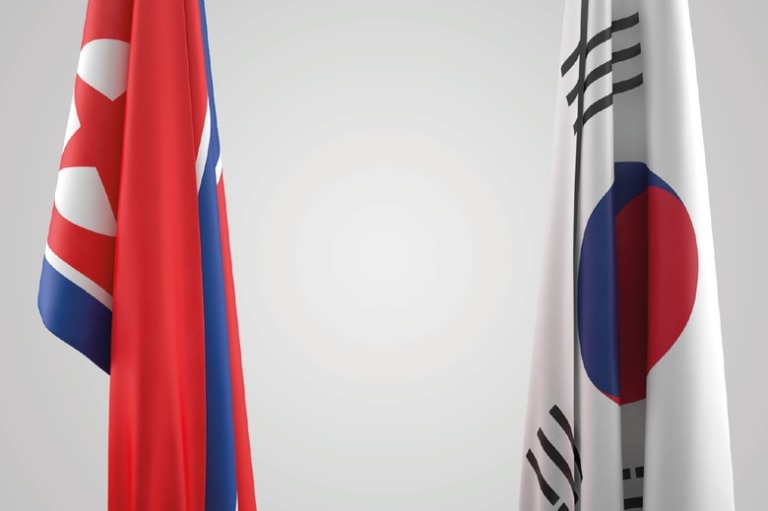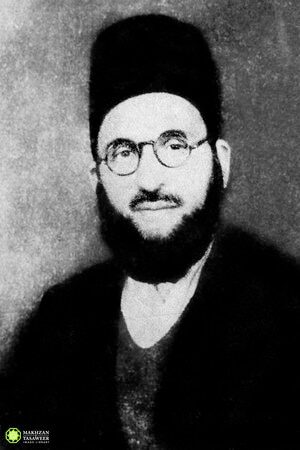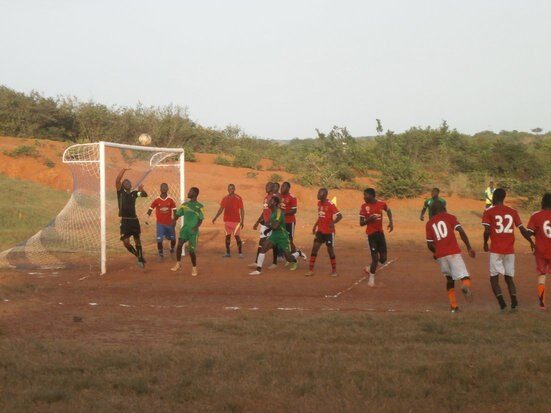Friday Sermon
6 April 2018
Responsibilities of Emigrated Ahmadi Muslims

After reciting the Tashahud, Ta’awuz and Surah Al-Fatihah, Hazrat Khalifatul Masih Vaa stated:
Although Spain is undoubtedly amongst the Western countries, but in terms of economic stability, it is counted among the less stable countries of Europe. Employment opportunities, wages and the quality of life is far less as compared to other European countries such as France, Germany, Holland or the UK etc. and this is usually what is asserted. However, in spite of this, as compared to Pakistan, the economic conditions are far better for those people that have migrated from Pakistan. That is why many Pakistanis come here for business or employment purposes.
As far as Ahmadis are concerned, when they emigrate from Pakistan, they do so due to two reasons; the foremost of these is the prevalence of restrictions placed upon religious activities and a lack of religious freedom for Ahmadis in Pakistan. The second [reason] is for the betterment of their economic situation. The majority of those who migrate to this country and apply for asylum, or try to gain visa for permanent residency do so by stating that the conditions for Ahmadis in Pakistan are not such that they can freely pronounce themselves as Muslims, or undertake acts of worship or follow religious practices in accordance with their faith.
Some people state their conditions truthfully as they file their cases for asylum, but some also conjure stories, albeit less in this country and more so in other European countries, however this is unnecessary. I have said many times that if one mentions truthfully the atrocities committed against us in Pakistan in the name of religion and merely state that “living in Pakistan under such circumstances puts me under extreme psychological pressure which is akin to continuous torture,” then usually, the authorities or the judges understand this and hence adopt a helpful and sympathetic attitude.
Thus, whilst putting forward ones case, there is no need to formulate exaggerated statements under the pressure of other people or lawyers. Likewise, one’s statement should be consistent from the outset right to the end, instead of altering it, which could lead the authorities to suspect possible fabrication.
In any case, an Ahmadi should safeguard themselves from lying. Allah the Exalted has equated lying to shirk [associating partners with God]. One can never expect from an Ahmadi that they would commit shirk. On the one hand an Ahmadi claims that “I am at the forefront in proclaiming the Oneness of God Almighty, and in coming into the servitude of the Holy Prophetsa and that I believe in the Imam of the Age: the Promised Messiah and Imam Mahdias.” But, on the other hand, they fail to protect themselves against this fundamental sin.
Thus, every Ahmadi should analyse themselves in this regard in order to assess whether or not they are undertaking any step for worldly gains, which will render us extremely sinful in the eyes of God Almighty.
Thus, as I have said, once we have emigrated from our homeland in order to safeguard our faith, and in order to remain firm on our faith, then we must give the utmost priority to the commandments of Allah the Exalted. We should see as to what our preferences are and what they ought to be after having accepted Ahmadiyyat, the true Islam. If these preferences are not in accordance with the commandments of God Almighty then we have failed to achieve the purpose of our migration. However, if these [preferences] are in accordance with this [the commandments of God] then we have achieved the purpose of our migration. Furthermore, in this case we will also be the recipients of the blessings of Allah the Exalted. If our very foundation is based on a lie and if we have made the attainment of the world our sole objective, then we will not be the recipients of the blessings of Allah the Exalted.
Those who believe in the unity of Allah the Exalted and worship Him, can never associate any partners with Him. The people who have understood the purpose of their creation, understand that their primary objective is to acquire the pleasure of God Almighty. We should always remember that our objective is not to attain the world and not to be engrossed in worldly affairs. This is not the reason for the birth of a believer. Only if we try to achieve the purpose of our creation set out by Allah the Exalted in order to attain His pleasure, will we be able to acquire true success and fulfil the purpose of entering this world. We will most certainly acquire this world and its blessings as Allah the Exalted does not deprive those of religious and worldly blessings who march towards Him. Allah the Exalted does not deprive those of the blessings of the world who strive in order to acquire His pleasure. As a matter of fact, Allah the Exalted has taught us this prayer to seek from Him the good of this world as well as the Hereafter, as He says:
رَبَّنَاۤ اٰتِنَا فِي الدُّنْيَا حَسَنَةً وَّ فِي الۡاٰخِرَةِ حَسَنَةً وَّ قِنَا عَذَابَ النَّارِ
[“Our Lord, grant us good in this world as well as good in the world to come, and protect us from the torment of the Fire.” (Surah Al-Baqarah: V.202)].
In relation to this the Promised Messiahas states:
“A person is in need of two aspects for his prosperity; firstly, to remain safeguarded from all difficulties, adversities and trials etc., which befall him in this temporary worldly life. Secondly, to be safeguarded from sins, evils and spiritual ailments, which lead him away from God.”
There are two [necessary] aspects for a person. Firstly, they have to undergo worldly hardships and ailments and secondly, spiritual hardships and ailments. Thus, a person should continuously try to remain safeguarded from these both. The Promised Messiahas stated, “The good of the world is to remain safeguarded from every form of evil, indecency and dishonour, both physically and spiritually.” (Malfuzat Vol. IV, p. 302, 1985 UK)
Further elaborating on [the word] Rabbana [our Lord], the Promised Messiahas states, “…observe, Allah the Exalted says:
رَبَّنَاۤ اٰتِنَا فِي الدُّنْيَا حَسَنَةً
[“Our Lord, grant us good in this world.]
The truth of the matter is that there is a subtle indication towards repentance in the word Rabbana [our Lord].” When a person says Rabbana, he completely inclines towards God Almighty. The Promised Messiahas further states, “The word Rabbana requires [and implies that] a person has left other gods which he had previously adopted, and turned towards this Lord. Furthermore, this word can only be uttered from the heart of a person with true anguish and fervour…”
When a person recites Rabbana [our Lord] in its true sense, it is uttered with an anguish. There are people who say Rabbana and offer this prayer superficially. Only if a person offers this prayer whole heartedly will the word Rabbana be uttered in its true sense. Furthermore, according to the Promised Messiahas, the word Rabbana cannot be said until there is a state of true anguish and fervour.
The Promised Messiahas states:
“The fact of the matter is that a person creates multiple gods for themself. They have utmost faith in their schemes and deceptions, as those are their gods. If they are proud of their knowledge or power then that is their god. If they are proud of their beauty or wealth then that is their god. In short, there are thousands of such gods which are attached to them. Until they do not forsake them all, bow their head before the One True Lord and fall at His threshold, supplicating the words of Rabbana, with true heart-wrenching emotions, they will not be able to understand the nature of the True Lord.”
As I have mentioned that people do say that we supplicate the prayer Rabbana, however the true words of Rabbana are only expressed when one supplicates with the resonating sounds of anguish, that melt the heart, and when one knows full well that they are saying Rabbana, whilst addressing the One Supreme God, Who is their Lord. Only when this occurs one can understand their True Lord and can supplicate before Him.
The Promised Messiahas further states:
“When one accepts their sins and supplicates with true pain and fervour, and then addresses their Lord, ‘Rabbana i.e. O my Lord! You were in fact the True God! Yet out of my error I wandered away from You, but now I have abandoned those false gods and I sincerely proclaim your Providence and come to Your threshold.’” (Malfuzat Vol. V, pp.188-189, 1985 UK)
Hence, this is the state that the Promised Messiahas wishes to see within us that we prostrate sincerely before Allah the Exalted, worship Him and understand the purpose of our creation.
When we fulfil our obligation to our Lord and call Him in this manner, then we shall attain the bounties of the world and of the Hereafter. In fact, one seeks the blessings of this world in order to attain the blessings of the Hereafter, such as good health so that one can worship God Almighty. Health is a worldly blessing and ought to be counted amongst the goods of this world, if one has good health then accordingly they can worship God Almighty. If one has wealth then they can make sacrifices for the sake of their religion and be granted the opportunity to serve the creation of God.
Therefore, we must always keep in mind this important principal. I mentioned earlier about fulfilling our obligation of worship. We ought to remember that we can only make such efforts when we fulfil the objectives of our being, in accordance with the commandments of God Almighty. In this regard God Almighty states:
وَمَا خَلَقْتُ الْجِنَّ وَ الْاِنۡسَ اِلَّا لِيَعْبُدُوۡنِ
“And I have not created the Jinn and the men but that they may worship Me.” [Surah Al-Dhariyat: V. 57]
Thus, when we ponder over the commandments of Allah the Exalted one after the other, [we come to know that] each one of them draws our attention towards remembering God Almighty. Your worldly pursuits ought not to make you heedless to the remembrance of Allah, nor should your aim be to only fulfil your worldly desires and attain this life.
Regarding this the Promised Messiahas states in one place, “Allah the Exalted says, ‘I have only created the Jinn and the men so that they may recognise Me and worship me.’ So in light of this verse the true purpose of man’s life is to worship God Almighty, understand Him and to become His.” The Promised Messiahas further says, “It is evident that man is not in the position to decide the purpose of his own life, for he does not come into this world by choice, nor will he depart therefrom of his own accord. In reality he is a creation. The One Who created him and granted him greater and loftier faculties than all other creation, (i.e. in comparison to other creatures He created man as the noblest of all creatures and granted him greater faculties) can be the One Who declares the purpose of His creation. Whether someone understands this or not, there is no doubt that the purpose of man’s creations is to worship God Almighty, attain His understanding and to lose himself completely in His being.” (Islami Usul Ki Filasafi, Ruhani Khazain Vol. 10, p. 414)
When man keeps this purpose in view, they become true believers, and such people also obtain the pleasure of God Almighty through worldly blessings. One’s intellectual capabilities, physical strengths, and a good financial standing or modern inventions and worldly grandeur should not make us oblivious to the purpose of our creation. One’s health, intellectual ability or the attraction of worldly objects around us should not overpower us to the extent that we abandon the purpose of our creation.
As I stated earlier, the majority of Ahmadis migrated to this part of the world due to their faith; due to the religious restrictions imposed on them in their country. Hence, this should always be kept in mind. Ahmadis proclaim that after a sustained period of darkness, the radiant Sun of Islam was to rise again in the era of the Promised Messiahas in accordance with the prophecy of the Holy Prophetsa. This Sun would bring the hearts of Muslims out of darkness into the light of the true teachings. It would bring them towards true Islamic teachings which are pure from innovation and the Sun was to inform the non-Muslims also about the beautiful teachings of Islam.
It is the duty of every Ahmadi after migrating here that they ought to strive and fulfil this important obligation. Ahmadis everywhere should inform others in their surroundings about the true Islam. The morals and standards of worship of every Ahmadi should be such that it should attract the attention of others. Where such things will distinguish Ahmadis from others, it will also be a source of propagating the message to the locals. There is a need for every Ahmadi to first understand the purpose of their creation and then convey it to others and direct their attention towards it. We must acquaint the world with the fact that the purpose of worldly blessings conferred by God Almighty is not to take one away from Him, rather, these blessings are here to draw us closer to Him. Hence, such blessings should be utilized in moderation. If one transgresses beyond this they head towards destruction.
Four or five years ago, the world did not envisage the fact that it was heading towards destruction, or was not ready to admit this fact. However today the situation is completely different. The main cause of this is because they think that the progress of the Western nations will save them, and they will be able to recover from any possible loss. Those who think in such a manner are wrong.
When there is destruction as a result of war, the well-established governments initially aim to recover from the adverse effects. The countries that are not as established, some of which are European countries, may experience even worse conditions. Hence, Ahmadis everywhere should make worldly provisions and more importantly focus their attention towards gaining the pleasure of Allah the Almighty through prayers. It is only the Grace of Allah the Exalted that can save the world from destruction and in order to absorb His blessings there is a need to follow all the directives that He has instructed. Only through prostrating before Him can we please Him. Every Ahmadi ought to remember that simply believing in the Promised Messiahas is not enough to enable them to acquire the rewards of this world and the Hereafter, nor can it save them from the punishment of the Hellfire. In fact, by accepting the Promised Messiahas it places an even greater responsibility to fashion our lives according to the pleasure of God Almighty.
The Promised Messiahas states:
“Remember that simply doing the Bai’at [oath of allegiance] is of no benefit; God Almighty is not pleased with this practise until one does not adhere to the true essence of Bai’at. Until then this Bai’at is merely a ritual. Therefore, it is essential to make an effort towards fulfilling the true purpose of the Bai’at.” What is its true purpose? The Promised Messiahas explains, “It is to adopt righteousness and to carefully recite the Holy Quran, and deeply ponder over it, and then act according to its teachings as it has always been the practise of God Almighty that He is not pleased by mere speech and verbal utterance. In fact, in order to attain the pleasure of God Almighty it is essential to adhere to the commandments of God Almighty, and to refrain from that which He forbids.” One should refrain from that which God has prohibited. “This is evidently clear because we observe that even man is simply not pleased with mere words, rather he too is joyful with actual service rendered towards him.”
The Promised Messiahas then says:
“The difference between a truthful and dishonest Muslim is that the dishonest only conjures plans but does not fulfil them. In comparison, a truthful Muslim sees any plan to fruition rather than making mere statements. Thus, when Allah the Exalted sees that His servant is worshipping Him for His sake and is benevolent towards His creation, at that moment He sends down His angels, thereby making a distinction between a true and a false Muslim, in accordance with His promise.” (Malfuzat Vol. VI, pp. 404-405, 1985 UK)
Therefore, it is vital for every single one of us to strive and become a true Muslim. One should derive benefit from the fruits and blessings of this world in a manner that one becomes the heir to the blessings of the Hereafter. We ought to fulfil our rights of worship to Allah. Since we have been forced to leave our countries due to our faith, whilst settling here we should strive to act on the teachings of our faith. May Allah enable every single one of us to achieve this purpose.
(Translated by The Review of Religions)

